Thursday 25 April, 2024
12 Dec 2022 | 5: 46 pm
Due to sea level raising in the Bay of Bengal and Mathamuhuri river going to navigability salinity water increasing day by day in the coastal part of Chakaria Upazila. Besides increased government allocation and investment, stopping the use of groundwater, digging large area-based ponds, canals and reservoirs to retain rainwater, creating freshwater reservoirs, the inhabitants including young people, women, men, communities affected by safe water crisis from Chakaria Upazila, Cox’s Bazar have demanded to ensure universal, equitable and sustainable access to clean water for the coastal communities of Bangladesh.
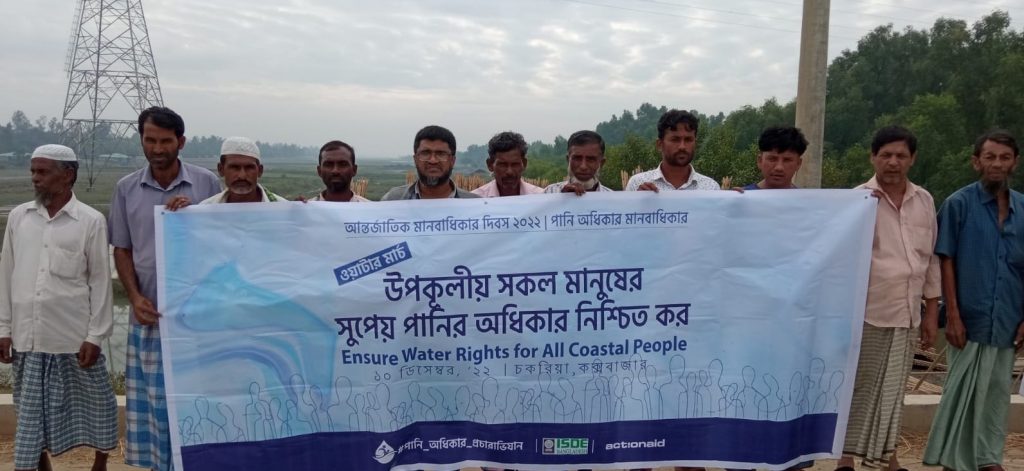
On the eve of International Human Rights Day 2022, 10 December Saturday the participants of the WaterMove Campaign in search of Ending Water Poverty in Coastal Bangladesh organized by ISDE Bangladesh, Participatory Research and Action Network-PRAAN and ActionAid Bangladesh under the theme ‘Water Rights are Human Rights, Ensure Water Rights of All Coastal People’ made this demand in Badarkhali, Chakaria Upazila, Cox’s Bazar.
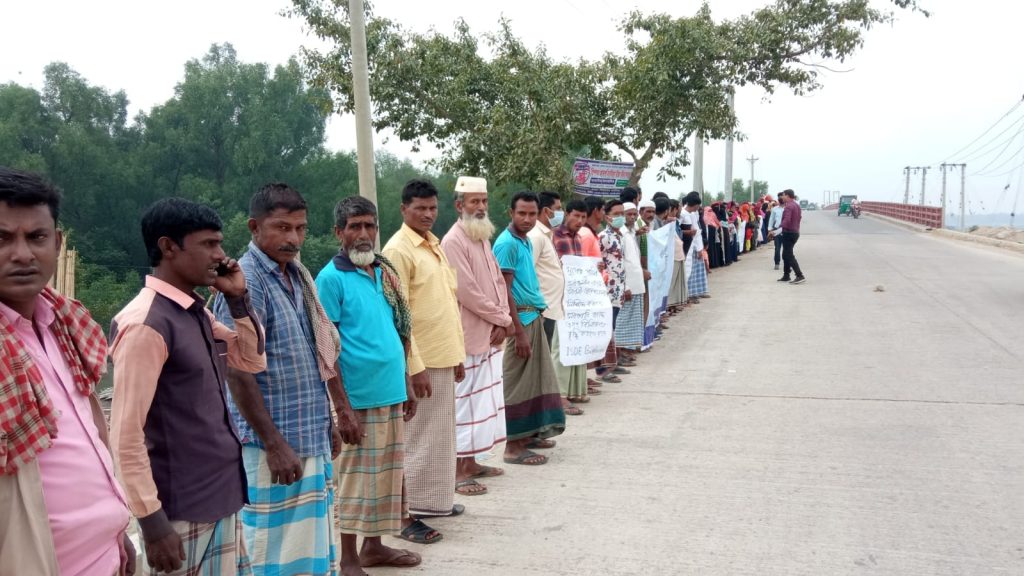
The discussion was moderated by ISDE Bangladesh’s Programme Coordinator Md Jahangir Alam and Founder of Virtual School and College, Director Mathamuhuri TV Journalist Mohiuddin Kader Odhul, Badarkhali Union Parishad Panel Chairman Manjur Kader, Youth leader Ishraf Ali Butthu, Jalal Uddin, ISDE Upazila Manager Jalal Uddin, Training Officer Abdullah Fahim, Sadia Sultana, Shahidul Islam also take part the discussion.
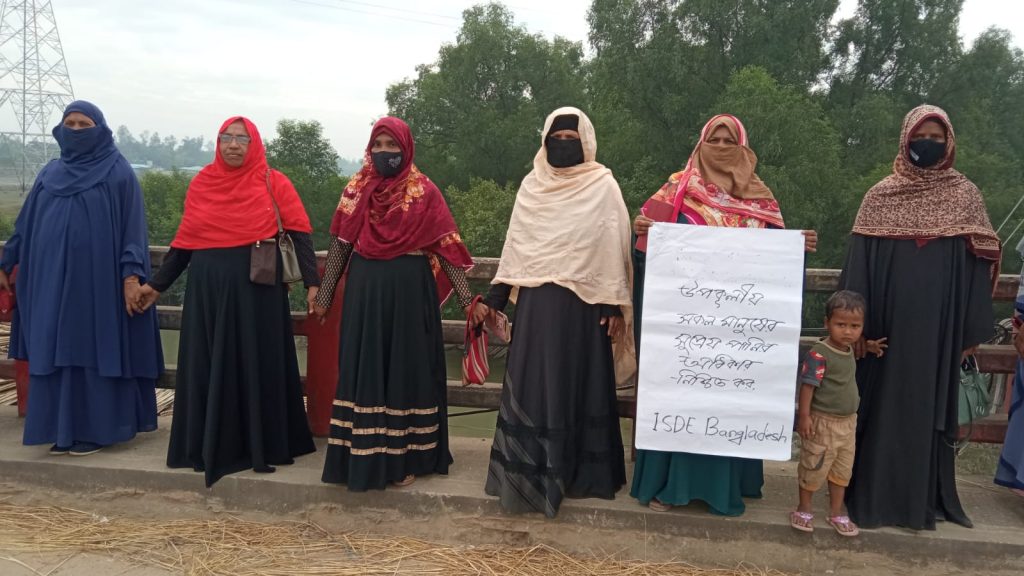
The speakers said that the right to water is an integral part of human rights. If the water rights of the coastal communities in Bangladesh are not protected, other basic human rights will also be undermined. Water crisis is not new in the coastal region of Bangladesh. Fresh water crisis is one of the important coastal risks. Water rights of coastal communities are particularly threatened by including coastal location, overuse and unplanned use of limited natural resources and also exposure to the direct impact of global climate change. On the one hand, due to the increase in the sea level, the salinity of the water sources in increasing every day. On the other hand, the deep tube wells cannot provide drinking water as the ground water level is on decrease.
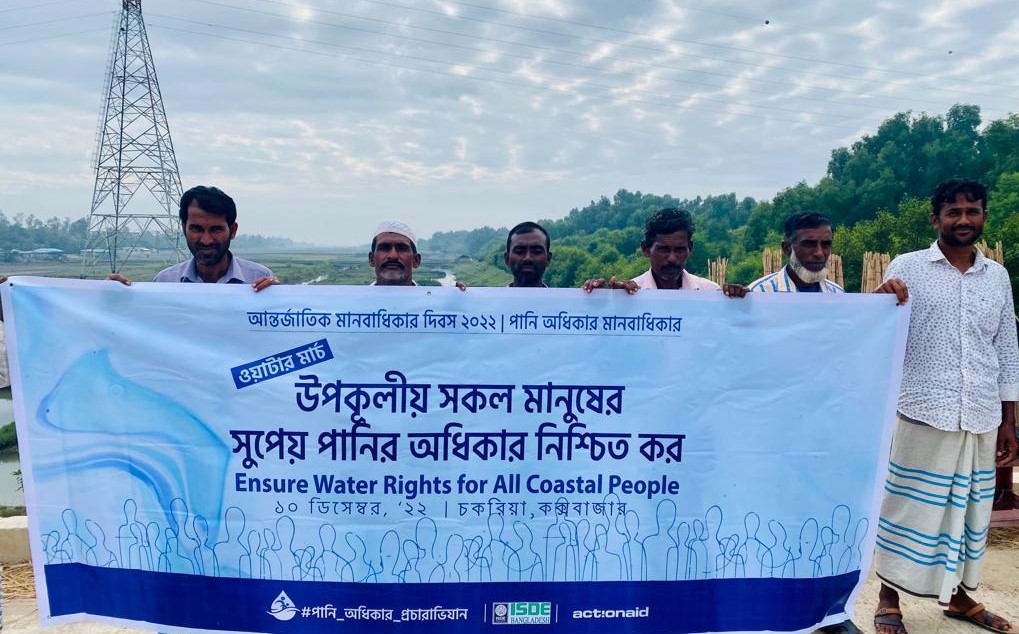
Speakers also said that the people of the coast are suffering from other problems due to the shortage of fresh water. Many people are suffering from high blood pressure due to the use of salt water in daily activities including cooking and drinking water. In the case of women, various risks are increasing for pregnant women including convulsions, uterine problems. Extra labor hours are being spent in fetching water from far away, and many are also being victims of violence. The economic pressure on families is increasing while buying water. This year, with the onset of winter, the water crisis has started to intensify. Therefore, effective and timely measures should be taken urgently to ensure supply of fresh water to the coastal areas. Speakers emphasized on taking long-term planning to ensure uninterrupted water supply as well as right to fresh water to take urgent consideration of fresh water crisis of coastal communities.
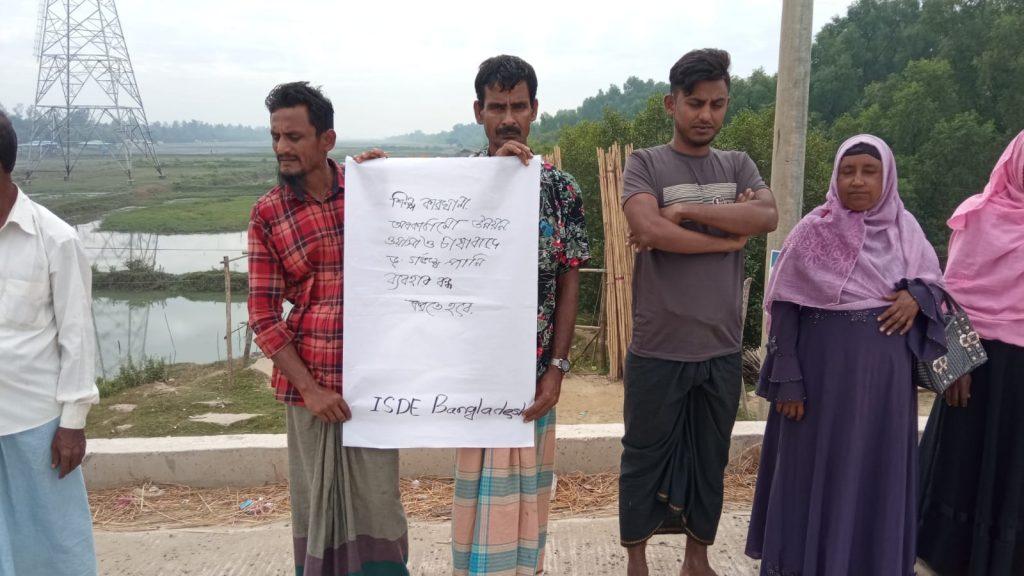
© Copyright isdebd.com
Powered By Muktodhara Technology Limited